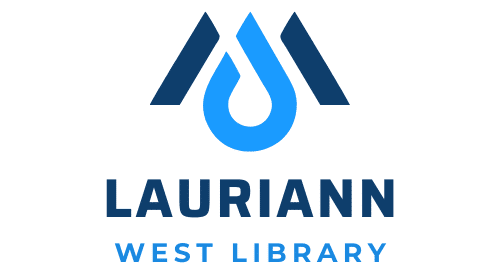A shift in the economic paradigm is happening around the world, and the United Kingdom is no exception. People are increasingly moving from ownership towards sharing, making use of goods and services without necessarily owning them. This concept of sharing economy or collaborative consumption, known in academic circles as the DOI (Digital, Online, and Interconnected) model, is changing how business is conducted. This article will explore how to leverage these collaborative economy models in the UK housing market, considering the implications for urban housing, prices, and the broader economy.
Understanding the DOI model and its impact on various businesses
As a first step, it’s crucial to understand what the DOI model is and how it affects different sectors. A study published on Google Scholar elucidates this model’s core principle: interconnectedness through digital platforms, allowing for online transactions and sharing of resources. This model has revolutionised sectors like transportation, accommodation, and even finance.
In the same genre : How Can UK-Based Elderly Care Services Utilize Technology for Better Patient Outcomes?
In the housing market, the DOI model has manifested in different forms. For instance, platforms like Airbnb have revolutionized the accommodation sector by allowing property owners to rent out their spaces temporarily at competitive prices. This model has potential implications for the housing market in terms of affordability, accessibility, and the democratization of space.
Implications of the DOI model on the Urban Housing Market
The adoption of the DOI model in the urban housing market presents both opportunities and challenges. On one hand, it opens up an avenue for homeowners to earn extra income by renting out their spaces. It also allows for more efficient use of spaces, thereby reducing the pressure on urban housing supply. On the other hand, the influx of short-term rentals could push up housing prices, making it less affordable for locals.
Also to see : What Are the Marketing Strategies for UK Educational Software in International Markets?
A research paper published by OECD indicates that if not monitored, the influx of short-term rentals can inflate housing prices, especially in popular tourist cities like Paris. Therefore, it’s necessary to strike a balance between leveraging the DOI model to meet housing demand and ensuring it doesn’t drive up prices prohibitively.
How Businesses can Harness the DOI Model
The success of businesses like Uber and Airbnb, which are anchored on the DOI model, is a testament to its potential. However, to harness its full potential, businesses need to understand its dynamics.
Firstly, businesses must acknowledge that the sharing economy is driven by trust. Therefore, they must invest in building trust with their consumers. This could be through transparent pricing models, robust dispute resolution mechanisms, and ensuring the safety and quality of their offerings.
Secondly, businesses must remain adaptive to changes in regulations. For instance, cities like Paris have imposed stringent regulations on short-term rentals in response to housing price inflation. Therefore, businesses looking to leverage the DOI model must remain ahead of the curve in terms of regulatory compliance.
The Role of Government in Regulating the DOI Model
While the DOI model provides exciting opportunities for businesses and consumers alike, it also presents a regulatory challenge for governments. The UK government must play an active role in regulating this emerging business model to ensure that it doesn’t adversely affect the housing market.
To do this, they will need to keep a close eye on housing prices and the influx of short-term rentals in key urban areas. They must also collaborate with businesses to ensure that their practices promote sustainable consumption and don’t inflate housing prices.
Moreover, governments can play a role in supporting businesses in the DOI space. For example, they could provide platforms for dialogue and exchange of best practices, create a conducive regulatory environment, and even provide financial support to startups looking to venture into this space.
Conclusion: The Future of the DOI model in the UK Housing Market
The integration of the DOI model into the UK housing market is an intriguing prospect with potentially far-reaching implications. As it stands, this model presents an avenue for more efficient use of housing resources, opening up opportunities for businesses and consumers alike. However, the government must play an active role in regulating this emerging model to ensure it doesn’t adversely affect the housing market. The future of the DOI model in the UK housing market is certainly an exciting space to watch.
Adapting Business Models in Response to the Sharing Economy
One of the crucial aspects of leveraging the DOI model in the UK housing market is the adaptation of existing business models. With the shift towards the sharing economy, it’s evident that traditional business models may not fully exploit the potential benefits of this new economy.
Google Scholar cites numerous studies showing successful businesses which have adapted their models to accommodate the sharing economy. For instance, some real estate companies have shifted from selling properties to providing shared spaces, thereby benefiting from the increase in housing demand without inflating house prices.
A research paper by the OECD also highlights the potential of shared housing for individuals with lower disposable income. It opens a window for these individuals to access better housing without the long-term financial commitment usually associated with housing finance.
However, businesses must also be mindful of the risks associated with this new model. Increased reliance on digital platforms could expose businesses to cyber risks. Additionally, the volatile nature of interest rates in the economy could affect the profitability of short-term rentals. Therefore, businesses must incorporate risk mitigation strategies into their models to tackle these potential challenges.
Integrating Collaborative Economy Models into the Housing Supply
The DOI model also has a significant implication on the housing supply. Housing stock in urban areas is often underutilized, with many properties remaining vacant for extended periods. The sharing economy provides a solution to this by facilitating a more efficient use of these spaces.
As per a report by the United Nations, integrating collaborative economy models into the housing market can increase the availability and affordability of housing. For instance, platforms like Airbnb allow for the temporary rental of vacant properties, thereby contributing to the housing supply without necessarily increasing the house prices.
Moreover, by encouraging the use of shared spaces, we can reduce the pressure on urban areas to constantly expand their housing stock. This could lead to more sustainable urban development and a more efficient use of resources.
However, it’s important to note that the success of this approach largely depends on consumer behaviour. If people are willing to embrace the sharing economy and the idea of shared spaces, then integrating collaborative economy models into the housing supply could prove highly beneficial.
Conclusion: Embracing the Collaborative Economy for a Sustainable Housing Market
The rise of the sharing economy, symbolized by the DOI model, offers exciting possibilities for the UK housing market. It presents an opportunity to create more efficient housing markets, reduce pressure on housing supply, and provide better housing alternatives for those with lower disposable incomes.
However, these benefits can only be realized if businesses, consumers, and the government work together. Businesses need to adapt and innovate, consumers need to embrace shared spaces, and the government needs to provide the necessary regulatory framework.
The key to harnessing the power of the sharing economy lies in building trust, adapting to changes, and promoting sustainability. It also requires vigilance in monitoring house prices and addressing potential imbalances in the housing market. As we look to the future, the DOI model in the UK housing market is an interesting space to watch. It reflects a shift towards a more collaborative, interconnected, and sustainable economy.











